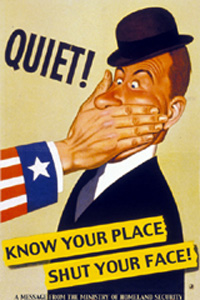mixmedia: all movie
all music
c-files portal
elbo.ws
flickr
hype machine
imdb
kcrw
myspace
facebook
pitchfork
tcm
hitfix
tv tattle
wfmu
youtube
nets: abc
bbc
c-span
cbs
cnet
cnn
espn
msnbc
npr
pbs
news: asia times
boston globe
cs monitor
financial times
guardian
haaretz
k-ridder
la times
ny dailynews
ny newsday
ny post
ny times
village voice
washington post
usa today
ref: amazon
citysearch
craigslist
ebay
bartleby
wikipedia
scitech:
digg
eureka
gizmodo
lifehacker
nat'l geog
new scientist
sci daily
wired
wires: alternet
google
memeorandum
my antiwar
political wire
rawstory
yahoo
zines: counterpunch
economist
harpers
nation
new yorker
ny mag
ny observer
nyr books
salon
slate
tnr
time
vanity fair
blogs: americablog
boing
crooks and liars
daily kos
eschaton
firedoglake
huffington post
hullabaloo
jesus general
metafilter
thinkprogress
tpm
glenn greenwald
wolcott
View current page
...more recent posts
catchers might The world is sad, Oscar Wilde said, because a puppet was once melancholy. He was referring to Hamlet, a character he thought had taught the world a new kind of unhappiness—the unhappiness of eternal disappointment in life as it is, Weltschmerz. Whether Shakespeare invented it or not, it has proved to be one of the most addictive of literary emotions. Readers consume volumes of it, and then ask to meet the author. It has also proved to be one of the most enduring of literary emotions, since life manages to come up short pretty reliably. Each generation feels disappointed in its own way, though, and seems to require its own literature of disaffection. For many Americans who grew up in the nineteen-fifties, “The Catcher in the Rye” is the purest extract of that mood. Holden Caulfield is their sorrow king.
